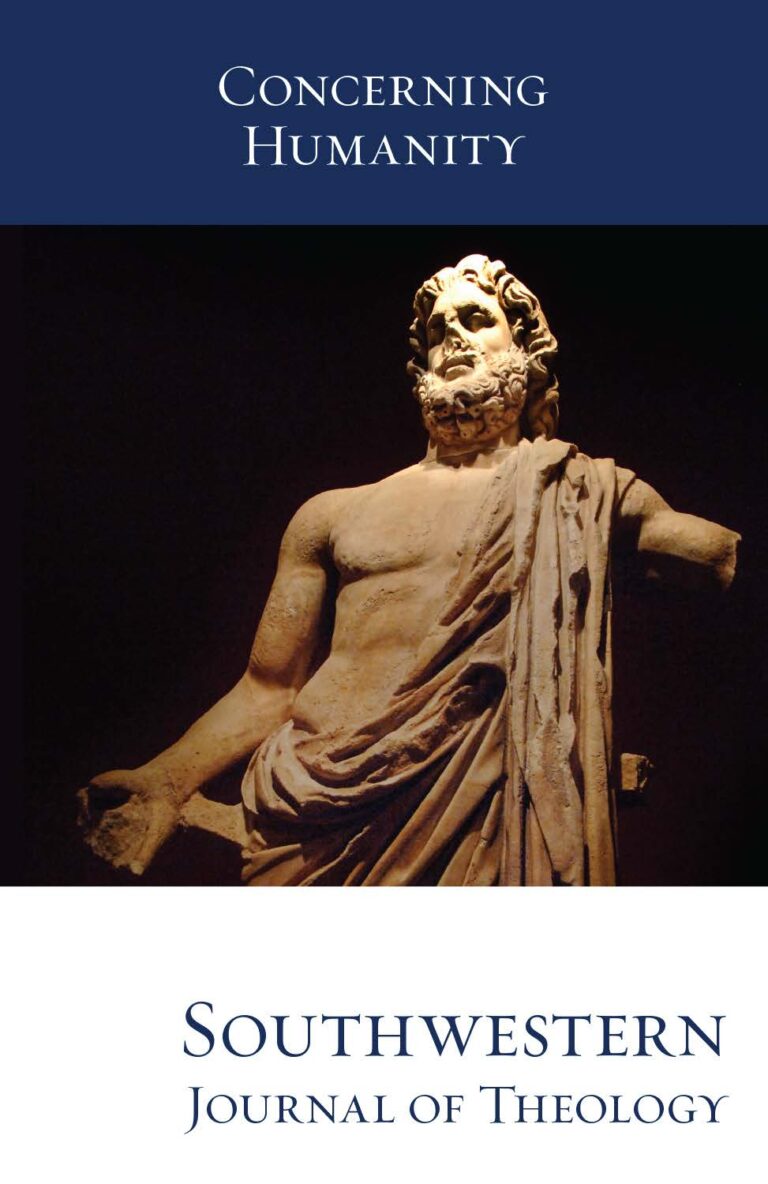
Concerning Humanity
Southwestern Journal of Theology
Volume 59, No. 1 – Fall 2016
Managing Editor: W. Madison Grace II
Edited by Paul Gould. New York: Bloomsbury Academic, 2014. 224 pages. Paperback, $29.95.
The debate over abstract objects goes back to Plato and is still heated today. Realists claim abstract objects exist while nominalists do not. Famed for its explanatory advantages, versions of Platonism eventually found their way into the Church. Platonism, however, raises crucial questions concerning God’s relationship with abstract objects. Paul Gould states the problem with his Inconsistent Triad:
- Abstract objects exist.
- If abstract objects exist, then they are dependent on God.
- If abstract objects exist, then they are independent of God.
Claim 1 is Platonism. Claim 3 is the traditional assumption of Platonism; however, claim 2 appears correct given orthodox theology. Christians are thus placed in a quandary. Which claim do they reject: that abstract objects exist, that all reality is dependent on God, or that abstract objects are outside God’s control? Gould pulls together six views addressing this quandary along with critiques of each view.
Keith Yandell is a Platonist and argues that claim 2 is false. He believes that abstract objects (propositions) are necessary in order to explain human language, such as making claims about reality and interpreting speech. Further, abstract objects cannot be dependent on God since abstract objects are necessary, but God is not necessary; the necessary cannot be dependent on anything. Instead, God is dependent on abstract objects for his knowledge and being. The major criticism against this view is that it violates the doctrines of divine sovereignty, aseity, and creation of all reality.
Paul Gould and Richard Davis are Modified Theistic Activists and argue that claim 3 is false. They claim that propositions are by nature intentional, and only thoughts can be intentional. Subsequently, they equate propositions with divine ideas. Other abstract entities are by nature nonintentional, so they must be necessarily created by God. Thus, abstract objects exist necessarily but depend on God for their existence. God’s properties exist a se and are not dependent on anything outside God. Major criticisms against this view are that all abstract objects are by nature intentional and must be in the divine mind, that divine ideas are not abstract objects, and that God’s mind would consist of inappropriate ideas if his ideas were propositions. Greg Welty argues for Divine Conceptualism and also rejects claim 3. Welty believes that a good theory of abstract objects will include the following aspects: objectivity, necessity, intentionality, relevance, plentitude, and simplicity of kinds. Welty believes this task can only be accomplished if the divine ideas function as abstract objects and provide the building blocks of reality. Further, such a theory gives us a good argument for God’s existence. There are two major criticisms of this view. First, it is not certain that divine ideas can function as abstract objects. Second, God is not subject to abstract objects like human beings, which seems to make God a nominalist. If nominalism is true for God, why cannot nominalism be true for all of reality?
William Lane Craig argues for nominalism and rejects claim 1. He believes that abstract objects conflict with the doctrines of divine sovereignty and creation because God would not control and would be dependent on abstract objects. Furthermore, God would not be creatively responsible for all of reality. As a result, nominalism should be explored, particularly fictionalism where our talk of abstract objects is just a useful device for expressing ourselves. The major criticisms against this view are that Craig has misinterpreted Scripture creating a false conflict and that fictionalism gives us false knowledge of reality because our words and claims do not actually describe reality.
Scott Shalkowski believes that claim 1 is false. He sees no warrant for believing in abstract objects. Like Craig, language is merely a tool for communication, not ontological commitment. However, he does not believe that abstract entities are a threat to God. As necessary entities, abstract objects, like the laws of logic, are not things that God could control anyway, so no problem exists. Further, there is no reason to think that the writers of Scripture had abstract objects in mind when they claimed that God is the creator of all things. The major criticisms against Shalkowski are that language is more than a tool but does ontologically commit despite our lack of intention or ignorance in committing, that truths prior to human existence would have nothing to bear their truth if nominalism is correct, and that Shalkowski interprets Scripture incorrectly.
Graham Oppy argues that metaphysics favors neither theism nor atheistic naturalism. Abstract Reality is separate from Causal Reality; therefore, abstract objects cannot be caused/dependent nor can they cause anything. Both theists and atheists can accept this point. Nominalism involves only human beings and their speech; again both theists and atheists can accept this point. Major criticisms against Oppy include an incorrect definition of causation that biases the argument in atheism’s favor, a misinterpretation of nominalism, and a confusion of dependency with contingency.
In short, the book comes down to two questions. First, do abstract objects exist? Second, what is the nature of abstract objects if they exist? Craig, Shalkowski, and Oppy are against abstract objects. Yandell, Gould/Davis, and Welty disagree over the nature of abstract objects. The question for the reader is who is correct if any.





